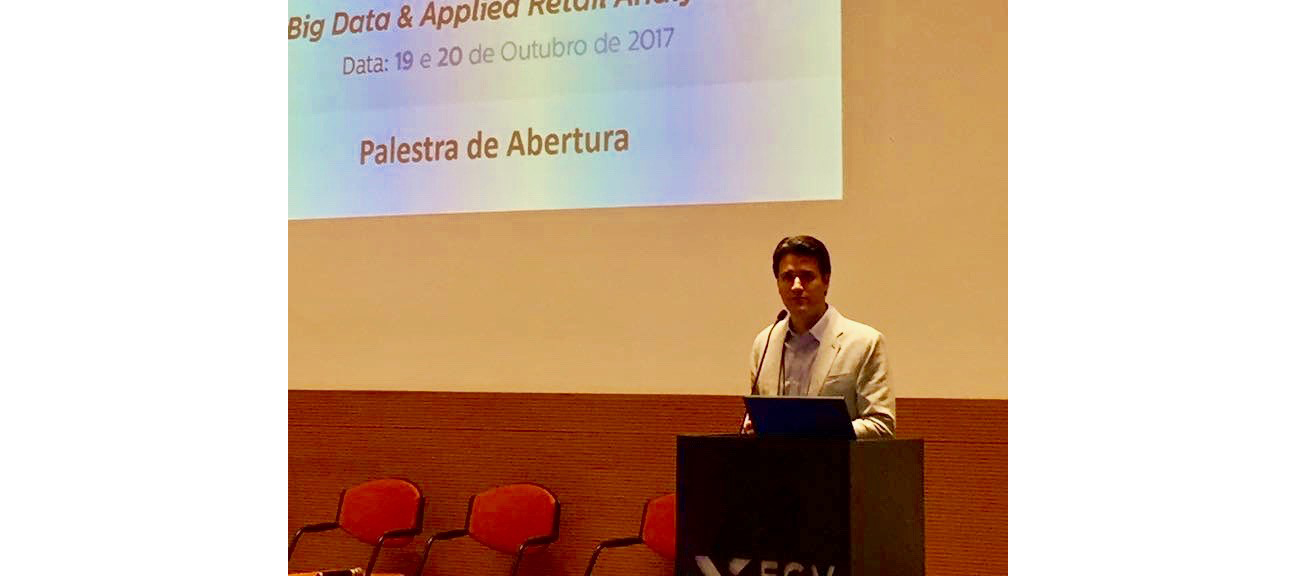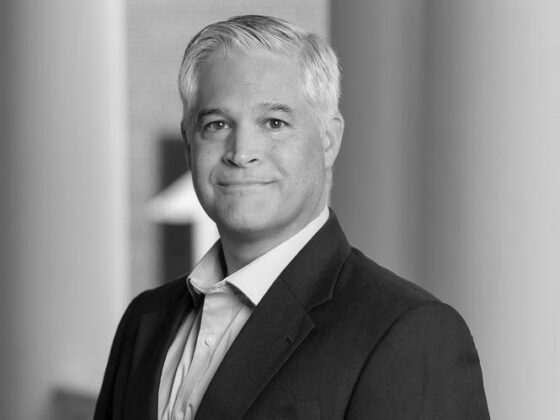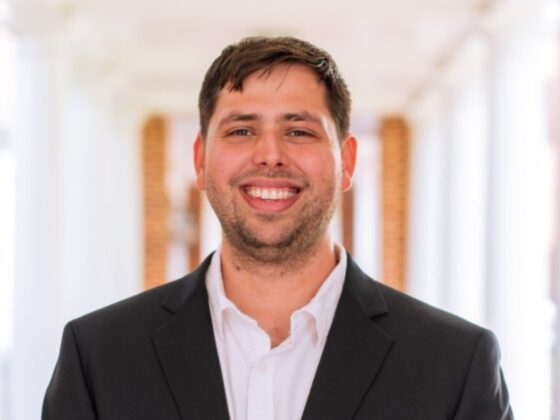Dr. Leandro Guissoni serves as an Assistant Professor of Marketing at Fundação Getulio Vargas (FGV) in Sao Paulo, Brazil. He holds a Ph.D. in Business from the University of Sao Paulo, and while he completed his Ph.D. research (2010-2012), he came to Charlottesville as a visiting Ph.D. student at Darden, working with marketing professors Raj Venkatesan and Paul Farris. He returned to Darden as a Visiting Scholar for the Batten Institute in 2015-2016, working on a research project on New Product Launch Decisions in Emerging Markets and co-teaching Darden’s second year elective class, Marketing Metrics, with professor Paul Farris. Leandro’s books on marketing metrics, trade marketing and shopper marketing have sold more than 10,000 copies in Brazil, and his research has been featured in the Journal of Retailing and The Washington Post. He has developed research projects and case studies in collaboration with leading companies and executives in Brazil such as Natura, Nielsen, Johnson&Johnson and Magazine Luiza. Prior to his current role at FGV, he was a partner of Markestrat and worked in the Marketing Department at Coca-Cola in Brazil. Leandro is also a Business Advisor of ToolboxTM, a local consultancy in Brazil that serves large global and local consumer packaged goods companies. The Darden Center for Global Initiatives is excited to welcome him as our newest CGI Fellow!
When did you first hear of Darden? How did the opportunity arise to attend Darden as a visiting Ph.D. student?
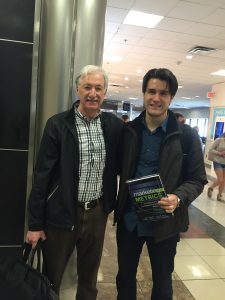
In 2010, during my Ph.D. program at University of Sao Paulo in Brazil, while checking up on a profile of a professor involved in research in marketing metrics, I came across Darden for the very first time when I found some interesting publications authored by Darden marketing professor Paul Farris.
Having reached out to professor Paul Farris, and later professor Raj Venkatesan, and following a brief exchange of communication, I was offered a deal whereby a visiting Ph.D. appointment at Darden could be arranged if a company in Brazil collaborated in our research project. Since I had worked at Coca-Cola in Brazil before, I contacted the company’s executives and they collaborated with us during my first project at Darden.
Tell me more about the research you have done at Darden previously. What was that experience like?
I lived in Charlottesville for the first time from 2011 to 2012 and visited Darden to work on research with the aim of understanding how consumer packaged goods (CPG) companies could achieve positive results by managing their brands through different retail formats in an emerging market such as Brazil. We analyzed sales of all brands of soft drinks, plus related advertising, promotions, and in-store merchandising, over more than four years in a largely urban region in southeastern Brazil. The area included both large chain retailers and small independent stores. We found that the effectiveness of marketing mix elements varies with the channel format. For instance, where full-service, mom-and-pop stores predominate, mass advertising is less effective but package size variety and market coverage (i.e., distribution) is particularly important to the marketing mix. Our study highlighted that marketing mix strategies popular in the self-service dominant channels of the developed economies are not as effective in the smaller full-service formats that remain important in emerging economies. Raj and I presented this research at the 2011 Theory and Practice in Marketing hosted by the Harvard Business School and then it got published in the Journal of Retailing. This experience has allowed me to understand the publication process and to create a better sense as to how to get our research approved in a good academic journal.
What did you gain that would’ve been hard to get elsewhere?
Not only Darden’s academic orientation, but also the close working ties with companies and executives would have been a hard deal to beat elsewhere. Having been both a marketer and an academic, the experience at Darden showed me how to understand possible synergies between the two. From my perspective and over my career, it further encouraged me to concentrate more energies on the academic side, because it is really my passion. At the same time, it has broadened my vision that it is possible to continue collaborating with the industry, even working in the academia. At Darden, I learned how to capture value for myself from the bridge between academics and executives and how to create value to both parties, since both gain from the other.
Further, faculties at Darden are very enthusiastic about their work and I have found a great environment to support my research. One thing that stood out for me was the flexibility I was given by my colleagues at Darden to come out with new projects and ideas. They had patience to guide me through the academic research process ever since the early stages of my career and invested in me.
Finally, from my perspective, this unique combination of investment orientation toward people, the positive working environment with faculties and students, and the proximity between scholars and executives has allowed me to become a more effective teacher and researcher.
How has Darden helped you grow your professional network? What impact have those connections had on your own development?
Being well-recognized worldwide my connection to Darden has easily opened many doors in companies and business schools alike in Brazil, allowing me to have new research collaboration with a multitude of companies, developing new case materials and research papers.
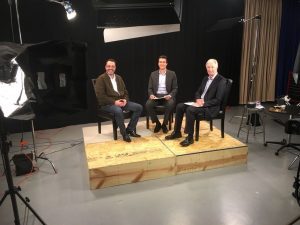
What is your vision for your time as a CGI Fellow?
Being a Darden fellow puts me in a privilege position to bring to a successful conclusion the various projects that are up and running.
First, I am working on a project with marketing professors at Darden to contrast the effectiveness of marketing mix strategies across global and domestic brands in a volatile economic environment prevalent in emerging markets. We hope to get a publication in top journals and professional magazines to contribute to the field.
Second, I would like to develop new teaching materials and write new case studies with companies in Brazil and Latin America. We have just finished a new case study released by the Darden Publishing and featured by Harvard Business Publishing in collaboration with Natura, Brazil’s second-largest brand in the cosmetics, fragrances, and toiletries market (CF&T). We describe Natura’s bold move when management accelerated the shift in channels as part of its strategy to expand customer reach by moving from a direct-sales company to a multichannel company and then an omnichannel company. The video interviews with the support of the Darden Media that feature a company’s executive are available publically.
Finally, one more initiative (still in the planning stage) is to organize academic events with professor Raj such as a conference in Charlottesville or Washington D.C. designed for scholars, MBA students and executives based on substantive business problems faced by consumer goods companies in Latin America. Since 2015, I have been the chair with my colleague from FGV, professor Delane Botelho, of the Latin American Retail Annual Conference that takes place at FGV in Brazil. The idea is to make use of the knowledge and network built around this conference to organize a new one hosted by Darden during my time as a CGI Fellow.
What kind of impact would you like to make in your career?
I would like to be a game changer in consumer brand marketing and retailing primarily in the Brazilian business and academic arena, and potentially in Latin American as well. I would prioritize stablishing myself as a person who bridges the gap between theory and practice. In this sense, my time as Darden CGI Fellow would allow me to develop research that focuses on relevant business problems to build thought leadership content with articles, case studies and teaching activities in collaboration with the industry.

